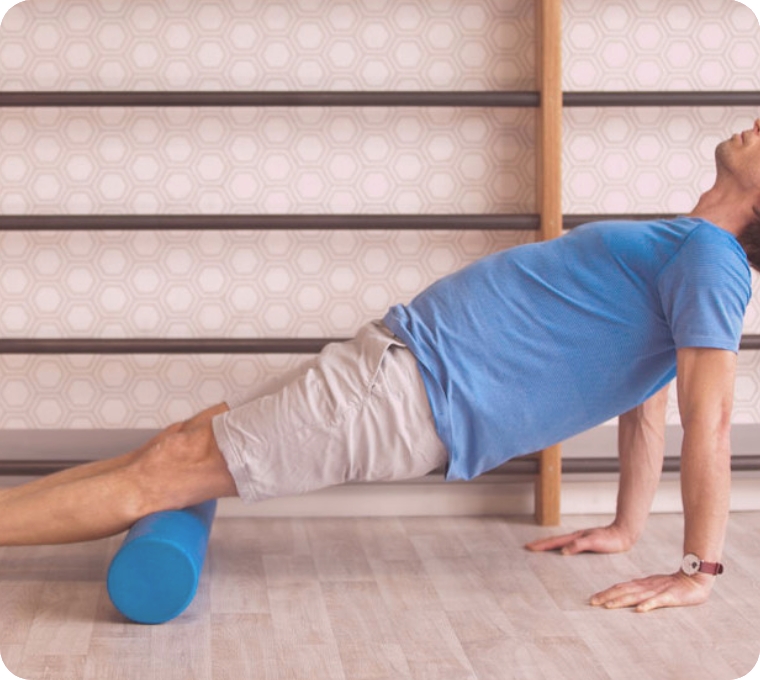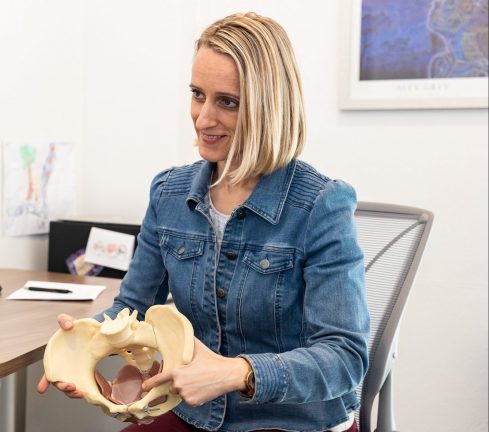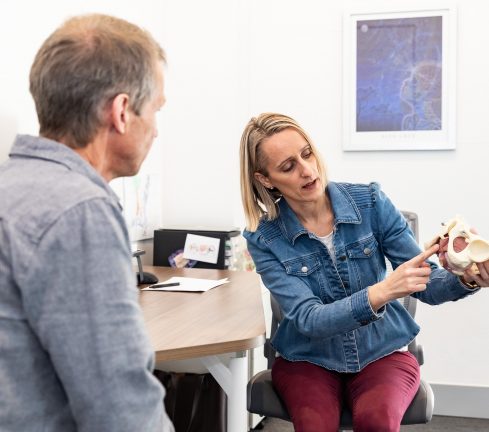Men’s Pelvic health
We view the pelvis as foundational in the human body. It is the centre of support and movement control in humans, effectively allowing us to walk, run, stand upright, bend, lift and move in a variety of directions. The pelvis contains vital organs unique to being a man – penis, testicles, scrotum, prostate gland, seminal vesicles and vas deferens – as well as the rectum, anus, bladder and pelvic floor muscles.

Bladder problems
Urinary incontinence (bladder leakage) affects up to 10% of men in Australia and can be both embarrassing and distressing. Symptoms may include urinary urgency, leakage before getting to the toilet, urinary dribble or leakage with physical effort. Our pelvic health physiotherapists have postgraduate training and expertise in assessing and treating bladder function in men. We aim to restore full bladder control by considering all the systems contributing to the dysfunction.
Bowel problems
The feeling of evacuating the bowels to completion, on a regular basis, can significantly contribute to the feeling of wellbeing for an individual. The contrary is also true, that problems with bowel evacuation such as constipation, incomplete emptying, straining, and soiling (faecal incontinence) can be distressing and significantly impact daily life. As the lower part of the bowel ‘lives’ in the pelvis, it is important to understand how the pelvic floor muscles relate to the bowel. Our pelvic health physios use a variety of methods to help men feel and move their pelvic floor muscles in order to improve bowel control and evacuation. We take a ‘systems’ approach to managing problems related to the bowel, including biological, nutritional, emotional, myofascial, mechanical, postural, psychological and social contributors.


Pelvic pain
The penis, testicles and scrotum ‘live’ on the outside of the pelvis, whilst the bladder, prostate gland, rectum and pelvic floor live on the inside of the pelvis. It has been proposed that the pelvic floor muscles become tense, not just to hold urine and faeces inside the body, but to protect the external organs.. a primitive protective reflex to keep these vital elements of human reproduction ‘safe’ when a man is confronted with danger. Modern day ‘dangers’ are typically different to those of early humans, however the protective response remains the same. A man can be repeatedly tensing his pelvic floor muscles subconsciously, resulting in chronic tightness, pain in the pelvis, bladder symptoms, bowel symptoms or erectile symptoms.. or any combination of the above.
The international definition of pain describes both a ‘sensory and emotional’ experience felt in the body. Our approach to assessing and managing pelvic pain is to consider all of the systems interacting to produce this experience in the body – this is called a biopsychosocial approach.. otherwise known as a holistic approach. Our team are actively contributing to research into pelvic pain. We aim to support men to heal, at any age.
Prostate problems
The prostate gland sits just below the bladder in men, and surrounds the urethra (tube through which urine passes). Problems with the prostate can significantly affect urine flow and also bladder function. Urinary urgency is common in men with prostate disease, and may result in urge urinary incontinence (bladder leakage). Our pelvic health physios regularly see men for assessment and management of bladder symptoms associated with prostate problems. For men undergoing surgery, we provide pre-op education, pelvic floor muscle training, lifestyle advice and bladder function assessment. Post-operatively we provide ongoing support, education, and rehabilitation, aiming to improve men’s health and restore bladder control.


